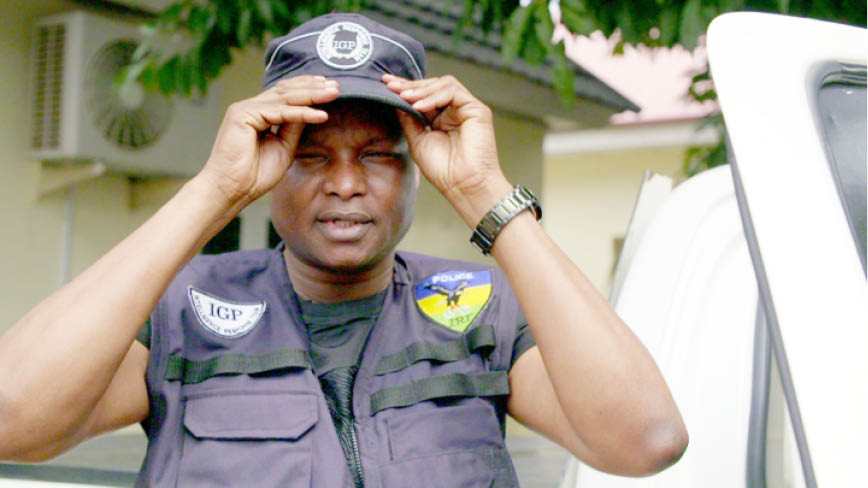When BBC Africa Eye focuses on kidnapping in Nigeria
The British Broadcasting Corporation (BBC), Africa Eye documentary, “Inside Nigeria’s kidnap crisis”, provides an enthralling x-ray on the menace of kidnapping in Nigeria. It journeys through the trauma and devastating effects of kidnapping on the Nigerian society and the extraordinary efforts of Nigeria Police Force Intelligence Response Team in curbing the menace in spite of […]

Abba Kyar
The British Broadcasting Corporation (BBC), Africa Eye documentary, “Inside Nigeria’s kidnap crisis”, provides an enthralling x-ray on the menace of kidnapping in Nigeria. It journeys through the trauma and devastating effects of kidnapping on the Nigerian society and the extraordinary efforts of Nigeria Police Force Intelligence Response Team in curbing the menace in spite of incredible odds. In this interview, BBC reporter Kunle Falayi tells Daily Trust on Sunday about their findings and suggests measures for tackling kidnapping in Nigeria.
What is Africa Eye about?
BBC Africa Eye is a documentary and investigative unit within BBC News Africa for the BBC World Service, which creates content for TV and online. Africa Eye provides in-depth reporting that holds power to account and tackles topics that are of interest and concern to audiences across Africa and beyond. Basically, the unit tries to do investigative reports that have far-reaching effects in the society.
Tell us about the investigation?
This Africa Eye investigation looked at kidnapping in Nigeria. There is no doubt that the country is in the grip of a kidnapping epidemic. Thousands of Nigerians have fallen victim and millions of dollars in ransom have been paid. A decade ago oil workers were the ones who were mostly been targeted, but now it seems that anyone can be a victim. We needed to see what efforts are being made to combat this problem. And for us, how to start is to look into the activities of the Intelligence Response Team (IRT) which the Nigeria Police established to combat kidnapping in the country using the latest intelligence. I was invited to embed with the police unit and I understand that this was the first time they had allowed an international TV crew inside their operation.
Why have you chosen this investigation?
I realised that there is no better time to take an in-depth look at kidnapping in the country beyond the peripheral reports we see in the media which emanate from the reports the police themselves relate to the public. Nigerians are concerned, a lot of people are afraid and we needed to see what is being done by those saddled with the responsibility of combating this problem.
How long has the unit been operating?
I understand the unit was formed in 2015.
Is this unit the answer to Nigeria’s kidnap crisis?
They are certainly one solution, but what I saw on ground is that they are undermanned, under-resourced and cannot address every case. Many ordinary Nigerians have to deal with the trauma of kidnapping alone. During my investigation, I met Paul and Spencer, who were kidnapped while driving on a major expressway. When their family couldn’t raise a ransom they were forced to listen on the phone to Paul and Spencer being beaten and tortured. Eventually, one million naira – almost $3,000 – was paid for each of them. We met them just one week after they were released. They have since contacted the IRT team and want justice. IRT officers tracked down one of the main suspects in this case. The suspects were seized and taken into custody.
Have questions been raised about their methods?
Certainly. Despite their achievements, questions have been raised about IRT’s methods. We spoke with a number of human rights groups in Nigeria and they say they have received complaints about police brutality by IRT teams. This for us is a vital point we needed to take up with the IRT. The IRT says all complaints are investigated and disciplinary action will be taken if necessary. The fact remains that the threat of kidnapping has now become a fact of life for most Nigerians and for now, Nigerians desperately need a police force that can bring the rule of law back to the country.
What is their great achievement so far?
The unit has taken down a who’s who of kidnap gangs. But one of the IRT’s biggest achievements has been the capture of alleged Boko Haram terror group members – some of whom were accused of kidnapping 276 school girls from the town of Chibok in 2014.
What are the challenges the unit has?
First of all, the unit is undermanned and secondly resources are grossly inadequate and these affect the number of cases the unit can take on. For a unit that has been successful in taking down notorious kidnappers in the country, it was shocking to discover how limited the resources they have to work with are.
How do you think these challenges may be addressed?
The Nigerian Government has to be deliberate in the fight against kidnapping. It makes no sense that a unit of the police tasked with one of the most increasingly common crimes in the country is not given the resources to carry out that responsibility. There has to be better resources, accountability and coordination in the fight against kidnapping in the country.
Clarify the assertion in your report that kidnapping is a fallout of inequitable distribution of national wealth?
It could well be argued that people get into crime because the nation’s wealth is looted and there are so few opportunities for many young people.
For the period we were working on this investigation, we spoke with many kidnapping suspects from different parts of the country and a recurrent theme in their words is that the lack of opportunities pushes them into these crimes.
Many young Nigerians would jump at any chance to run away from the country because of lack of opportunities. Some of those who cannot find their way out will gravitate towards crime.
